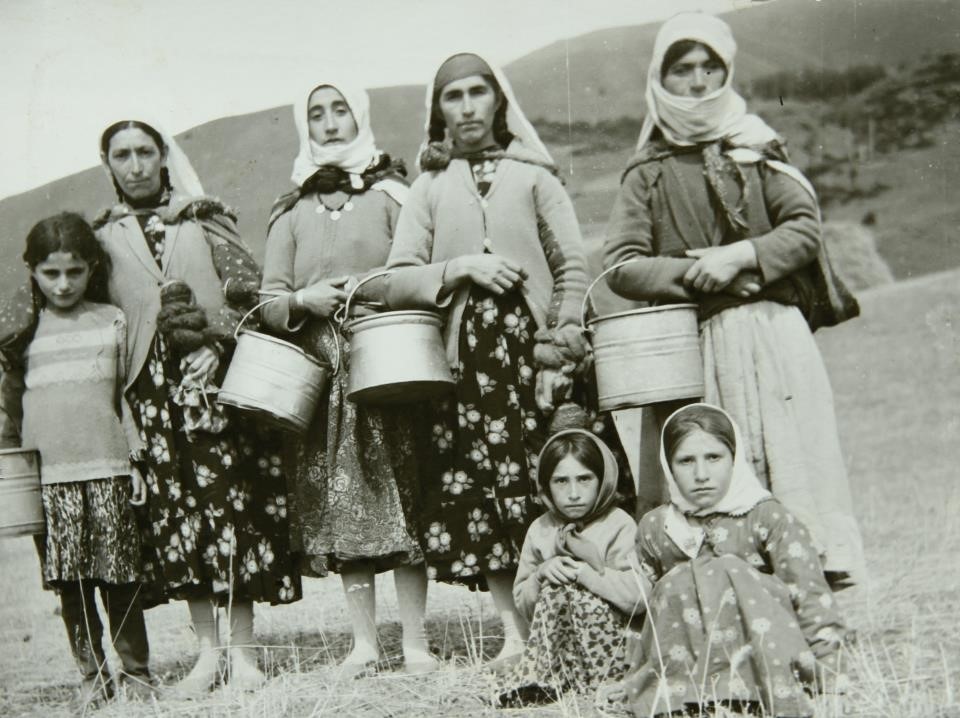On becoming a singer
Suna
Alan
I am a Kurdish/Alevi singer based in London. I was born in the mountainous
province of Cewlik (Bingol),
an ancient Kurdish and Armenian province in Northern Kurdistan (officially
Moving to Izmir in my early childhood meant that much of my formative
years were spent surrounded by traditional Kurdish dengbej
(“bard”) music and Kurdish-Alevi laments within a
rich cosmopolitan cultural environment.
Coming
from a Kurdish Alevi family means growing culturally
with the sound of the tembur and folk songs.
When relatives came together, they would play tembur,
either men or women, and sing and dance together. I was a good observer and
listener despite being a child, which is why I still remember those sounds and
the timbre of the sounds. I also liked to listen to folk and protest songs
playing on the radio. I grew up with such a cultural memory.
Throughout my education,
I was involved in music in amateur level, including during my university years.
But after settling in
Since Ottoman times,
Izmir (Smyrna) has indeed embraced a myriad of ethnic and religious communities
— people such as Kurdish, Greek, Albanian, Circassian,
Armenian, Sephardic, Christian, Alevi, and Jew. This
led me to incorporate stories from many other ethnic and religious identities
in my music.
The politics of music
Not only singing in
Kurdish but also listening to Kurdish is political. I started learning this at
a very early age. During the criminalisation of the
Kurdish language after the military coup of 1980 in
If they were caught
[listening to Kurdish music], they were more likely to be ill-treated as
terrorists and separatists and put in prison. It seems that not one cassette
was saved from the fascist period under Kenan Evren’s rule of
When I was a student at
high school in
In Kurdistan, but mainly
in the Turkish part, over many decades, hundreds of Kurdish singers have been
murdered, on the grounds of their identity and because of their fight against
injustice and oppression.
For example, in the late
1970s, while even listening to Kurdish music was considered a crime, Hozan Hemido was singing Kurdish
revolutionary songs in public in the
Also, from my hometown,
the artist Rencber Eziz,
who was also blind, composed a piece in the Zazaki
dialect named “Way Way Ninna”
to criticise the fascist junta administration after the 1980 military coup.
Referring to Kenan Evren,
the lyrics say: Your (Kenan) Evren
has been our donkey / He has entered our garden / He peeled the leaves of our
hawthorn / Our people are not like before /If Rencber gives the ox and takes a rifle / Fascist has no
salvation. After a while, Rencber Eziz’s
music was banned and he was jailed. Under suspicious circumstances, in 1988 Eziz fell from a tall building in Hanover, Germany, where
he was an asylum-seeker, and he died.
Eyaz Yusif (Zaxoyi) and many other artists,
who were kidnapped and murdered by Saddam Hussein’s agents in 1986, responded
to the persecution with music and therefore paid a heavy price. There are many
Kurdish artists, whose names we have not yet counted and have been subjected to
serious pressures, torture and death due to their identity.
Even
recently, in 2015, Nudem Durak,
a young female singer who was teaching Kurdish folk songs to children in her
town of
Like almost every Kurdish
child who was torn from their land at an early age, I am one who has
experienced identity conflicts through growing up in
I also spent my childhood
with my maternal uncle and aunts as a result of migration. The fact that each
of them was playing tembur and singing impressed
me naturally as the next generation.
In addition to their
music, the story of all of them affected me. Aunts who went
from Izmir to the mountains to become freedom fighters; an uncle who was
sentenced to life imprisonment because of his political thoughts. I
believe that these people, both artists and seekers of freedom, have shaped my
art.
I grew up in such a
political environment because there was persecution. Where there is
persecution, you express your reactions with culture, art or different methods;
and I chose music.
Music in Kurdish culture
As to the importance of
music in Kurdish culture, and its ability to bring about change, the political
and occasional military conflict that started in the mid-1980s and continues
today has changed the role and position of Kurdish music, which is an important
part of social and cultural life in Kurdish society.
In Kurdish social life,
music has become a political activity; and it has been one of the main channels
through which Kurdish resistance in
Production style and
products arising from the difficulties that musicians face as both Kurdish
musicians and Kurds alone, has found an important response in the Kurdish
people and a style of expression emerged from the pain and anger they were
exposed to.
In addition to the role
of political Kurdish music to strengthen the sense of Kurdish belonging, it has
an important opposing role to the dominant Turkish identity. In other words, a
person who performs or listens to Kurdish music will not only associate
themselves with Kurdishness, but will also separate
themselves from Turkishness.
In this way, the Kurdish
political and social opposition has established an effective and sustainable
music-political discourse over a national identity that fights injustice and
oppression.
* Edited from Suna’s interview with Steve Sweeney, Morning Star, 26 June 2020.
* Many of Suna’s recorded songs can be accessed online at
The Kurdish
Songbook Project and Art Records
.
Figure 1: Female members of Suna’s
family, photographed in the 1960s in Qayik village
of Cewlik (officially Bingol)
province in northern Kurdistan, officially Turkey.